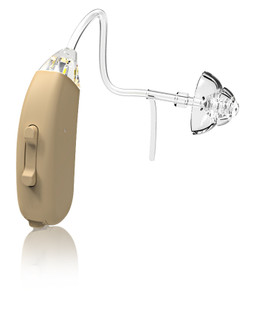Hearing Loss in Children: Early Detection and Intervention Strategies
Posted by DR Paul on Sep 21, 2024
Hearing loss in children can have a significant impact on their development and overall well-being. It is important for parents and caregivers to be aware of the signs of hearing loss in children and to seek early detection and intervention strategies. In this blog post, we will discuss the importance of early detection, common signs of hearing loss in children, and effective intervention strategies that can help support children with hearing loss.
Importance of Early Detection:
Early detection of hearing loss in children is crucial for their development. Research has shown that children who receive intervention services for hearing loss at an early age are more likely to reach their full potential in terms of speech, language, and cognitive development. By detecting hearing loss early, parents and caregivers can provide the necessary support to help their child thrive.
Common Signs of Hearing Loss in Children:
There are several signs that may indicate a child is experiencing hearing loss. These signs include delayed speech or language development, difficulty following directions, turning up the volume on electronic devices, and not responding when called from another room. If a parent or caregiver notices any of these signs, it is important to schedule a hearing evaluation for the child.
Hearing Aid Intervention Strategies:
Once a child has been diagnosed with hearing loss, there are several intervention strategies that can help support their communication and development. One common intervention strategy is the use of hearing aids. Hearing aids can amplify sounds and improve a child's ability to hear speech and environmental sounds. Additionally, speech therapy can help improve a child's communication skills and language development.
Other intervention strategies may include cochlear implants for children with severe to profound hearing loss, auditory-verbal therapy to help develop listening skills, sign language instruction for children who are deaf or hard of hearing, and classroom accommodations to ensure the child has access to educational materials and resources. It is important for parents and caregivers to work closely with audiologists, speech-language pathologists, educators, and other professionals to develop an individualized plan that meets the unique needs of their child.
Conclusion:
Hearing loss in children can have a significant impact on their development, but early detection and intervention strategies can make a world of difference. By being aware of the signs of hearing loss in children and seeking timely evaluation and support, parents can help their child reach their full potential. Remember that every child is unique, so it is important to work closely with professionals to develop an individualized plan that meets your child's specific needs. Together, we can ensure that all children have access to the tools they need to thrive despite any challenges they may face related to hearing loss.










